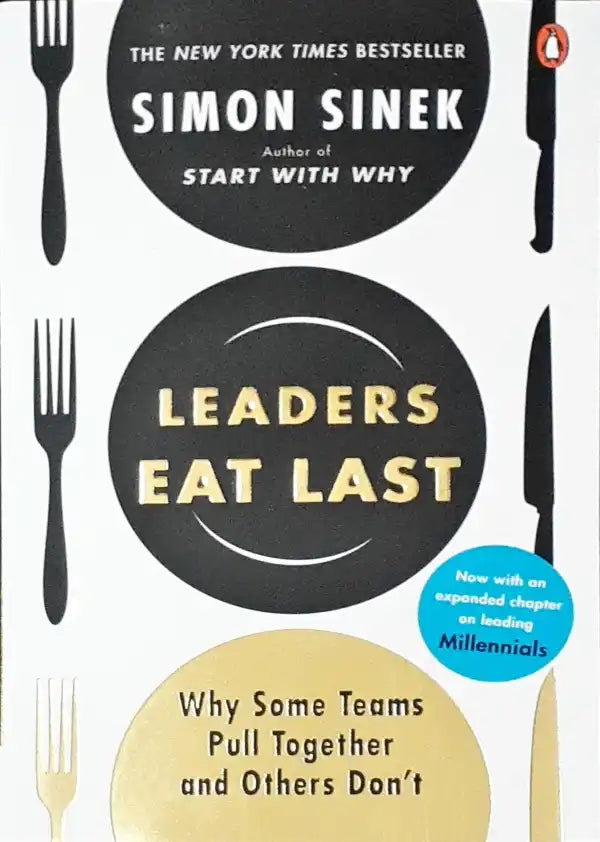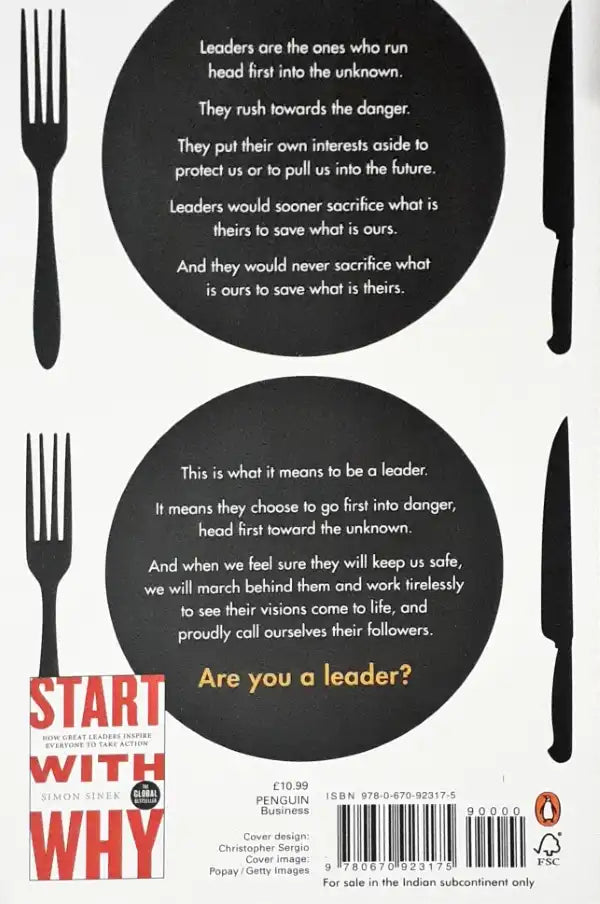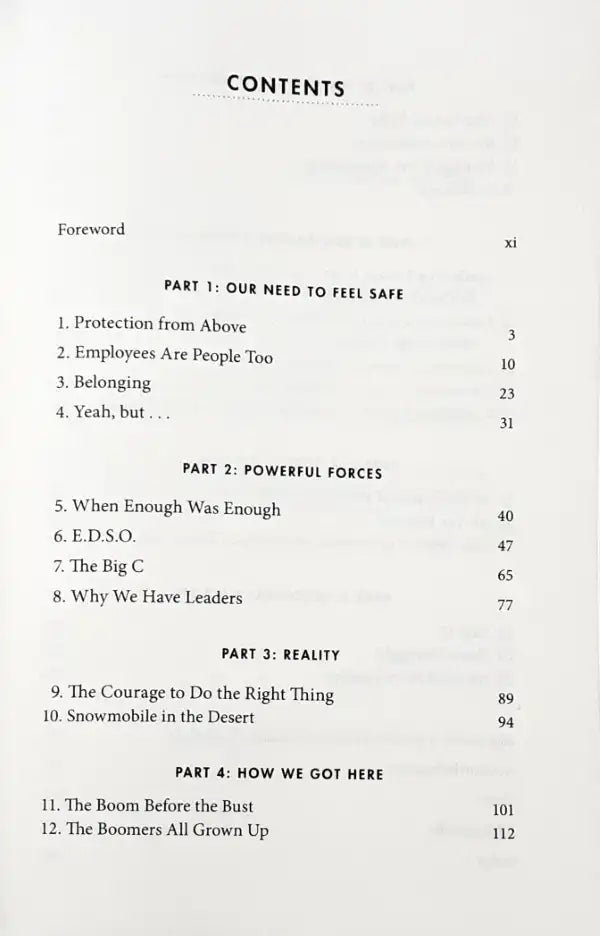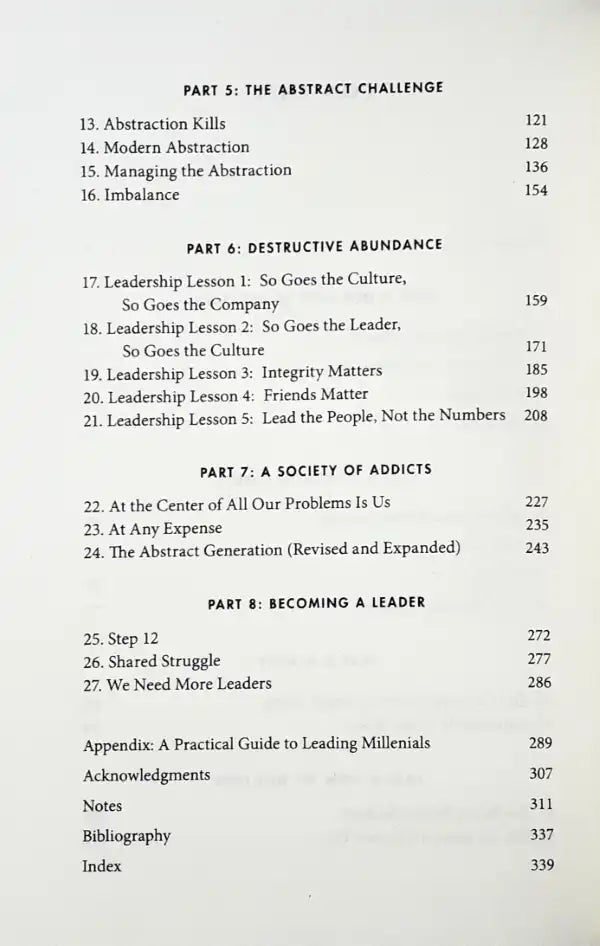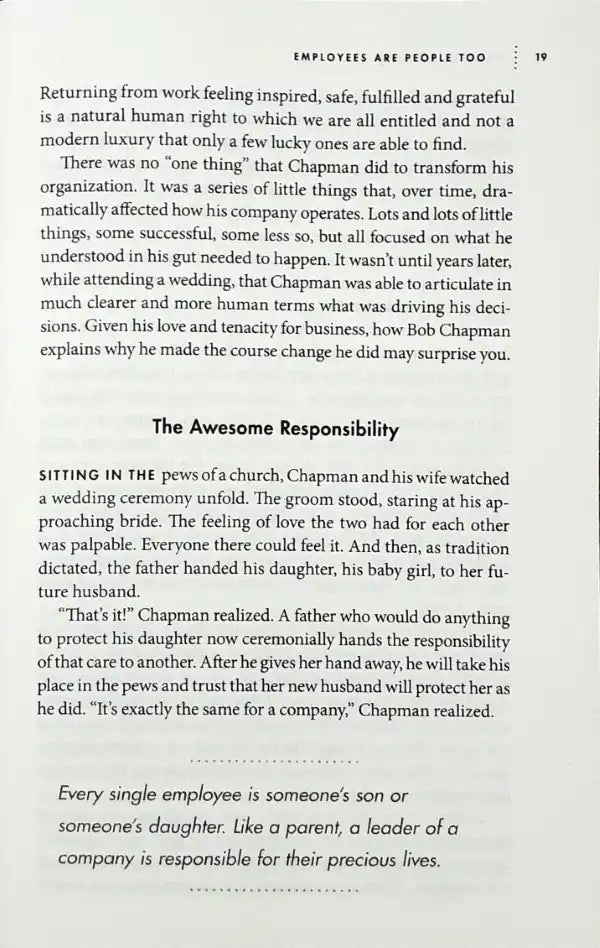New
Leaders Eat Last: Why Some Teams Pull Together and Others Don't
Leaders Eat Last: Why Some Teams Pull Together and Others Don't
Simon Sinek
Age (years) : 18 - 99
Couldn't load pickup availability
Leaders Eat Last: Why Some Teams Pull Together and Others Don’t by Simon Sinek
Literary Awards - Goodreads Choice Award Nominee for Business Books (2014)
Why do some teams thrive on trust and cooperation while others fall apart despite perks and incentives? In Leaders Eat Last, bestselling author Simon Sinek reveals that the answer lies in leadership that puts people first.
Drawing on real-world examples from the military, business, and government, Sinek introduces the powerful idea of the Circle of Safety—an environment where leaders protect their teams, build trust, and inspire people to work together toward a shared goal. Rooted in human biology and timeless leadership principles, this book shows why great leaders sacrifice personal gain for the well-being of their teams—and how doing so creates loyalty, resilience, and extraordinary performance.
A must-read for leaders, managers, and anyone who wants to build stronger, more engaged teams.
Keywords: Leaders Eat Last book, Simon Sinek Leaders Eat Last, Leaders Eat Last Simon Sinek book, business leadership books, team leadership books, workplace culture books
management books India, best leadership books, Circle of Safety leadership, organizational leadership book, business self help books, leadership psychology book, Books and You leadership books
- Details
Publisher : Penguin Books
Format : Paperback
Language : English
Content : Non-Fiction
Style : Non-Illustrated
ISBN : 9780670923175
Size : Medium
SKU : BY13-2686
Genre : Leadership / Business
Share
